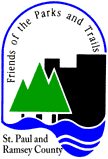In 2013, the Minnesota Legislature gave Minneapolis and St. Paul the legal authority to collect Parkland Dedication (land, or cash in lieu of land) at time of platting and permitting. While St. Paul currently has a Parkland Dedication ordinance on the books, it is not very effective. For starters, it is based on the increased number of parking spots a project will create. In development areas such as the Green Line Corridor, new parking spaces are not being added, thus making it impossible to collect Parkland Dedication. The City of St. Paul is in the process of updating the Parkland Dedication ordinance to reflect these two realities: the ordinance needs to be improved and there is clear legal authority to collect Parkland Dedication.
FAQ:
1. What is Parkland Dedication? It is the amount of land, or cash fee in lieu of land, that the City is legally allowed to collect for a development, based on the estimated fair market value of the land. It is not a percentage based on the cost of the entire project, but rather the value of the land only. For that reason, it is equitable throughout the City.
2. Why do green spaces matter? Parks, trails, and green spaces have been proven time and again to add economic value to property, as well as adding to the social and health benefits of living in a community. Parks are a place to gather to build community, to calm the mind, to recreate and exercise, to create art. Parks can serve as wildlife habitat and pollinator habitat. Parks and green spaces filter the air and water. Trails can connect us to nature, as well as to other parts of our community.
3. How does having a robust Parkland Dedication ordinance benefit green spaces? The land collected through Parkland Dedication would be used for parks, trails, and other open spaces. If cash were collected instead of land, that money can be used to improve and develop existing parks, trails, and open spaces, and to acquire more land for those uses.
4. Why should I care? Having a strong ordinance is important to enable the City to collect land or cash in lieu of land. Having a strong ordinance means the City Council will decide where the money is spent, leading to equitable distribution. As it is drafted, areas currently without parkland would lose funds to areas with more parkland, continuing to make the park system less equitable. Having a robust ordinance means that badly-needed funds will go to our park system. The recent recession showed in other parts of the country that when public funding is cut, private donors step up but then the public has limited influence on where the money is spent. The private donor wants parks where he/she spend time, in effect building “private parks” and, once again, leading to less equity through the funding system. Properly funding our park system is an equity issue.
4. What can I do? The public hearing before the St. Paul Planning Commission was held on January 16, 2015. It is scheduled to be on the agenda of the Comprehensive Planning Committee on March 10. You can contact Mayor Chris Coleman and your City Council Member and tell them that you believe in the importance of parks, trails, and open space and that you want your voice represented when it comes to a vote. You can tell them that properly funding our park system builds a more equitable and livable community. You can become a member of Friends of the Parks and Trails of St. Paul and Ramsey County to show your support for the work we are doing to make this happen.
Here is the statement we gave at the Planning Commission hearing on January 16, 2015.
Oral comments, Planning Commission, 1:16:2015, pdf
Here is the letter we sent to the Planning Commission and shared with members of the City Council:
